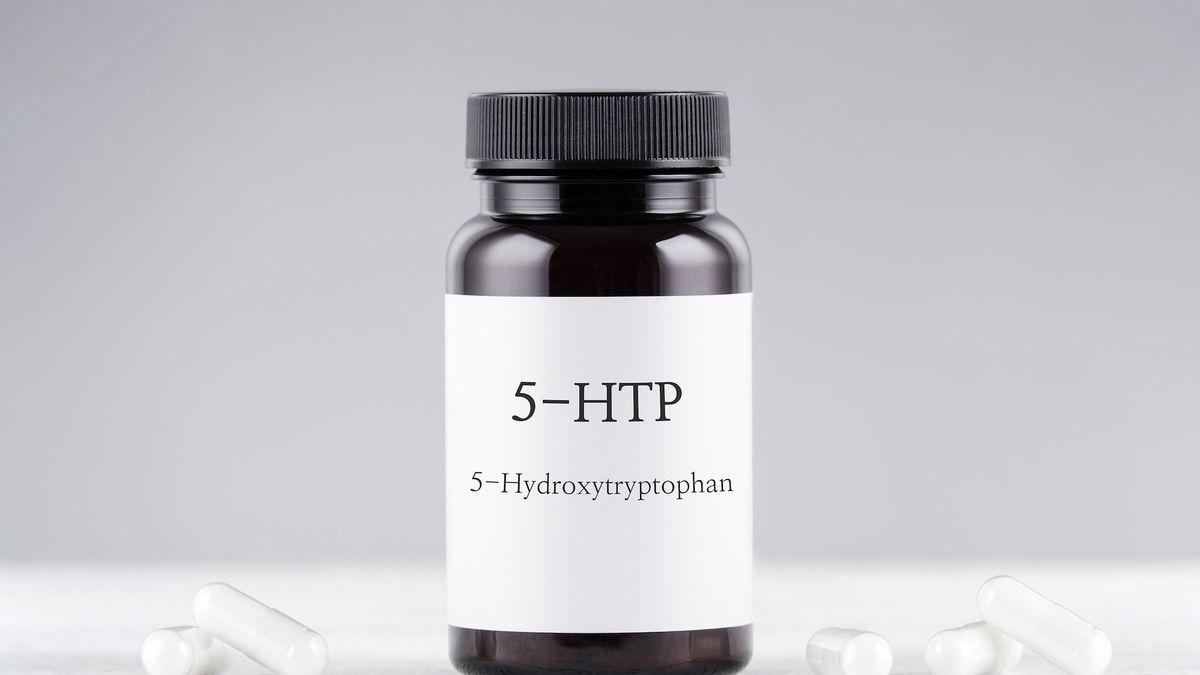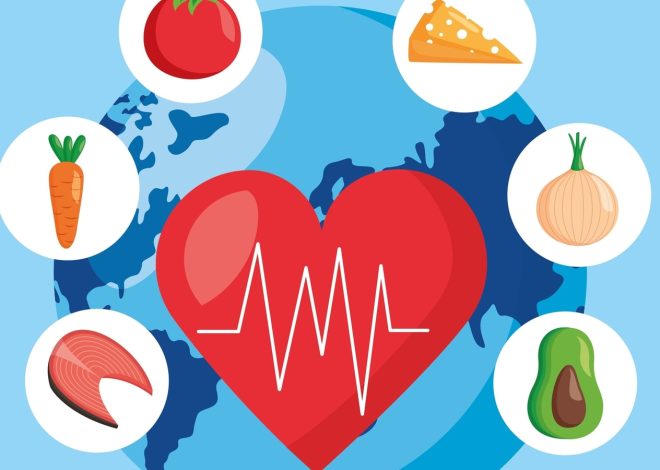
definitions, indications, effectiveness of this amino acid
Ingrid Haberfeld
Journalist
Published on
Updated
in collaboration with
Nathalie Negro (dietician at the Thermes de Brides-les-Bains)

This amino acid produced by our body allows the synthesis of serotonin in the brain. The result is anti-stress, anti-anxiety effects and treatment of depressive disorders. Where is 5-HTP found? Is it really effective? Doesn’t its consumption cause a health risk? Update with Nathalie Negro, dietitian-nutritionist.
What is 5-HTP?
L-5-hydroxytryptophan (5-HTP) is an amino acid, naturally produced by our body from tryptophan, another amino acid present in our diet. “A varied diet helps meet needs because this amino acid is present in very common foods, particularly those rich in protein such as meat, fish, eggs, crustaceans and molluscs, dairy products, but also in nuts (almond, hazelnut, cashew, etc.), dark chocolate, banana and brewer’s yeast“, lists Nathalie Negro, dietician-nutritionist, head of the nutritional center at the Thermes de Brides-les-Bains.
“5-HTP has the property of crossing the blood-brain barrier and transforming, once in the brain, into serotonin, also called the “happiness hormone”. This neurotransmitter then has well-being effects by promoting the balance of the emotional system: numerous scientific studies have also highlighted a link between a depressive state and serotonin deficiency.explains Nathalie Negro.
Moreover, many researchers are currently looking into whether 5-HTP could replace antidepressants from the family of selective serotonin reuptake inhibitors (SSRIs), which include Prozac®.
This amino acid also exists in the form of a food supplement. It is available in capsules and tablets. It is extracted from an African plant, called “Griffonia Simplicifolia”: all elements and parts (root, stem, bark, leaves, flowers and seeds) can be used, but the best concentration of 5-HTP is found in the seeds which are harvested and exported after drying.
What are the benefits of griffonia?
“By promoting the production of serotonin, 5-HTP helps reduce the effects of stress, manifestations of anxiety (particularly in the context of smoking cessation), mild to moderate depressive states, panic attacks, chronic headaches as well as symptoms of fibromyalgia“explains Nathalie Negro.
But in 2012, European health authorities (EFSA, the European Commission and the European Food Safety Authority) looked into certain health claims for food supplements based on 5-HTP.1. After examining the scientific data, they concluded that from now on, L-5-hydroxytryptophan could not claim to improve cognitive functions (capacity for mental concentration, memorization, etc.), to calm hyperactivity, to lead to regulation of mood or promote weight loss by promoting the feeling of satiety. These claims are therefore prohibited on bottles and packaging.
How much 5-HTP per day?
This amino acid is marketed in the form of capsules or tablets. The dosage of htp-5 used in clinical trials ranged from 150 to 600 mg per day. The advice for use will then depend on the pathology in question. Thus, when faced with depression, it may be recommended to take a dose between 50 and 100 mg of 5-HTP 2 to 3 times a day, while for a headache or migraine, the dosage will be between 300 and 600 mg of 5-HTP daily. Ask your doctor or pharmacist for advice before starting a treatment. Please note, these food supplements cannot replace proven allopathic treatments.
How long to take 5-HTP?
The Griffonia food supplement is taken as a one-month course, renewable as needed. Ask the advice of your doctor or pharmacist.
Is the amino acid L-5-hydroxytryptophan effective?
5-HTP has been the subject of numerous studies: around twenty, involving more than 1,000 people, have looked at its effects on depression and ten, involving nearly 600 people, have looked at its role. in case of headaches and migraines. But these studies were mostly carried out during the 1960s and 1980s. They are therefore difficult to interpret today. “As for its effect on fibromyalgia symptoms and anxiety, they have not been fully validated.”indicates the dietitian-nutritionist.
What are the contraindications to taking 5-HTP?
Its consumption is contraindicated in pregnant and breastfeeding women, in people with Down syndrome (taking it could cause convulsions), in people suffering from high blood pressure and cardiovascular disorders, as well as in those suffering from scleroderma (a patient who is characterized by thickening of the skin). Furthermore, it is also not recommended to consume 5-HTP simultaneously with analgesics such as Tramadol®, the combination again being able to cause Call-Fleming syndrome (prolonged but spontaneously reversible vasoconstriction of the cerebral arteries).
The consumption of food supplements based on this amino acid is not recommended when taking serotonin antagonists because they can inhibit the effects of 5-HTP. Finally, this product should not be left within the reach of children.
What are the side effects of Griffonia Simplicifolia?
Its consumption in the form of a food supplement can cause undesirable effects such as digestive disorders in certain sensitive people, in particular nausea. These symptoms are usually temporary.
Taking this amino acid can also cause drowsiness. Be careful if you have to drive a vehicle or work on machinery. All of these symptoms can also occur in case of griffonia overdose.
What precautions should be taken when taking 5-HTP?
“Caution is advised if you are taking treatment with antidepressants: the combination could dangerously increase the level of serotonin in the brain, which could cause effects such as agitation, tremors, tachycardia or Call-Fleming syndrome. It is a vasoconstriction of the cerebral arteries, responsible in particular for violent headaches and even neurological disorders.alerts Nathalie Negro.
As a precaution, do not take 5-HTP without the advice of your doctor.
Should we consume food supplements based on 5-HTP?
As it stands, health professionals are quite reluctant to recommend taking this amino acid in the form of food supplements. In Europe and the United States, its intake is strongly discouraged by health experts. “To benefit from the health and fitness benefits of this amino acid, it is best to enrich your diet with foods rich in tryptophan.recommends our expert. You can also include food products that are sources of serotonin on your menu. This is the case for brown rice, legumes such as lentils, chickpeas and beans, cabbage such as broccoli and cauliflower, eggs and dairy products..

Ethel Purdy – Medical Blogger & Pharmacist
Bridging the world of wellness and science, Ethel Purdy is a professional voice in healthcare with a passion for sharing knowledge. At 36, she stands at the confluence of medical expertise and the written word, holding a pharmacy degree acquired under the rigorous education systems of Germany and Estonia.
Her pursuit of medicine was fueled by a desire to understand the intricacies of human health and to contribute to the community’s understanding of it. Transitioning seamlessly into the realm of blogging, Ethel has found a platform to demystify complex medical concepts for the everyday reader.
Ethel’s commitment to the world of medicine extends beyond her professional life into a personal commitment to health and wellness. Her hobbies reflect this dedication, often involving research on the latest medical advances, participating in wellness communities, and exploring the vast and varied dimensions of health.
Join Ethel as she distills her pharmaceutical knowledge into accessible wisdom, fostering an environment where science meets lifestyle and everyone is invited to learn. Whether you’re looking for insights into the latest health trends or trustworthy medical advice, Ethel’s blog is your gateway to the nexus of healthcare and daily living.


